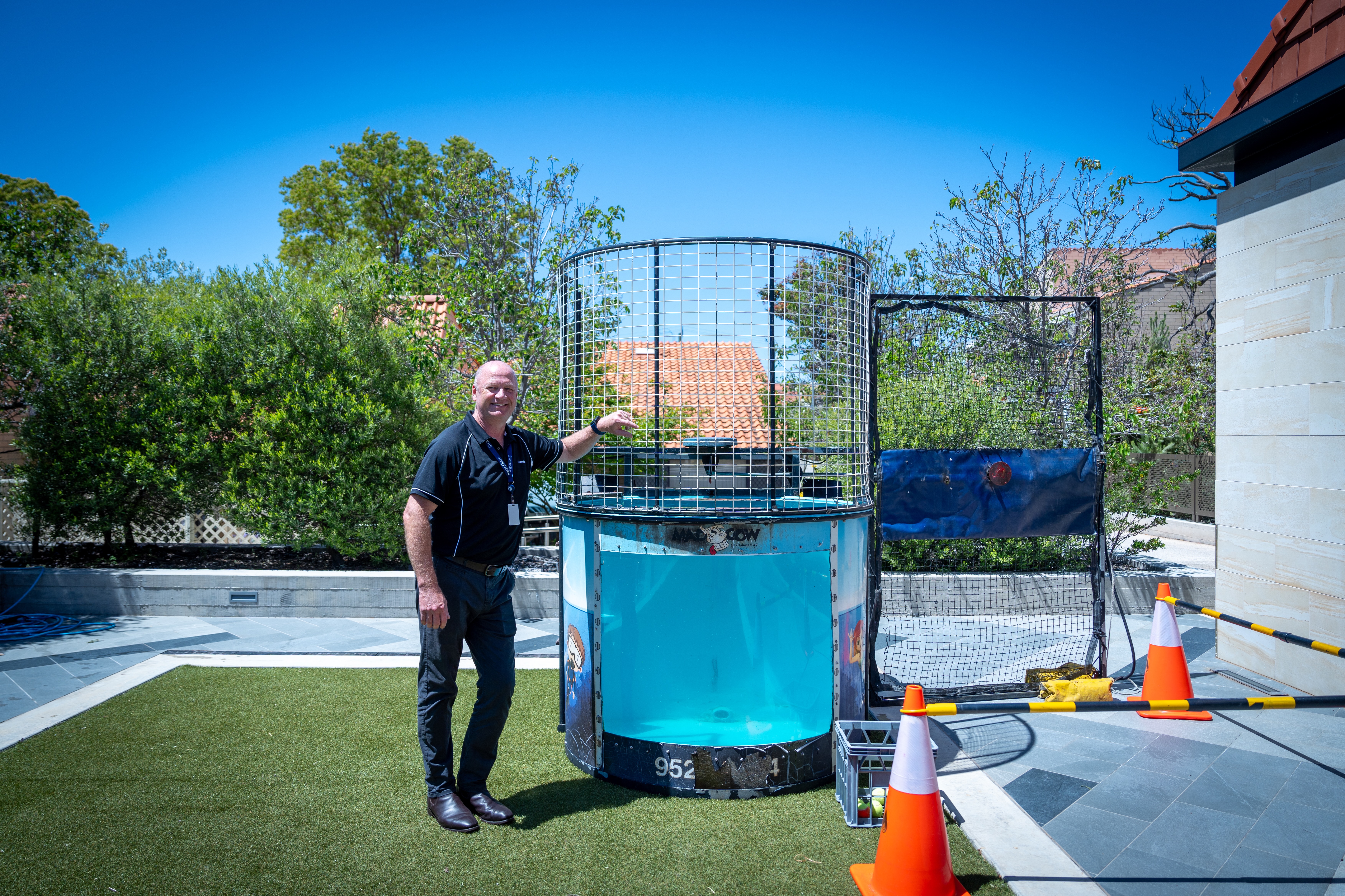
Throughout October, our staff have participated in various activities and initiatives to commemorate National Safe Work Month.
31st October 2024
Throughout October, our staff have participated in various activities and initiatives to commemorate National Safe Work Month. From Safe Tea catch ups to a giant dunk tank, we’ve done it all! Proving that learning about safety doesn’t have to be boring, but that safety does have to be everyone’s business.
To wrap up the month, we spoke to our WHS & Risk Manager Paul Marshall to learn more about safety in the workplace and what it means for us at SwanCare.
“National Safe Work Month has provided an opportunity for us to pause and reflect on our safety journey so far. We have made some progress this year, but still have a long way to go.
Our team are our greatest asset so together we need to find ways to identify hazards, take action to fix problems and not be afraid to step out of our comfort zone to have a safety discussion.”
Well, we know a special group of staff who certainly stepped outside of their comfort zone this month. Taking a splash for safety was our CEO Graham Francis, Community Living Coordinator Matt Upston, ICT Officer Tristen Galipo, as well as Social Engagement Assistants Kirsten MacDonald & Leidy Ortiz. Click here to watch all the action!
“The idea behind the dunk tank was twofold. Firstly, I wanted to make safety fun,” Paul explains, “Secondly, it was to try and provide a physical demonstration that if we have absent defences (like training, equipment etc.) that there is a direct increase in the likelihood that an incident may happen, and a staff member may be injured.”
Paul led the Safety Expo, using the dunk tank as part of his demonstration. The tank itself was representative of an injury, and through the scenario discussion, engaged staff to call out and identify what could be done to prevent an incident occurring. The tank then physically demonstrated that by taking away some, then all of the safety defences, someone was very liked to be injured – or dunked in this case!
The Safety Expo comes as part of an effort to raise awareness for the staggering statistics our sector faces when it comes to safety. Paul shares more.
“Of all industries across the country, those working within Health Care & Social Assistance (us) represented the most serious claims of all industries (19.1% of total per year with the next closest being Construction at 12%).
This indicates that our staff work in the industry with the highest level of serious injury, a fact that not many would be aware and one which we need to be mindful of and be proactive in our safety approach.”
Why do we think that is?
“Perhaps because the very nature of what a significant portion of our staff do, is to care for people,” says Paul, “Often, the desire to help others can come at a cost to ourselves.
They want to help others, especially in times when a resident has fallen or may be going through a moment of distress, however our team need to take a breath, think about the situation and make sure they act in a way that that won’t harm themselves or others.
This would be hard as our team are very caring and it would go against their instincts to pause, but we need to work on that as a skill.”
Safety isn’t always physical. That’s why mental health was also a key focus for us this month, and for good reason.
“There is a prevalence and significance of mental stress claims which represent 10% of all serious claims. When we compare all other serious claims which have an average cost to business of $14K and duration of 7.2 weeks, mental stress claims have far greater impact with an average cost to business of $65K and a staggering 37-week duration.”
In recognition of this, we held numerous ‘Safe Tea’ catch ups across the campus where team members could take a moment to connect over a cuppa. Additionally, staff were invited to participate in an organisation-wide psychosocial survey, something Paul hopes will kickstart lasting change.
“Based on the figures, it is very clear we need to heavily invest our time and resources in proactively addressing mental health, starting with the survey which will provide some very useful data.
Ultimately, we want every team member from the top to the bottom to take a step back and recognise the signs, as you often can’t see mental health hazards.”
To conclude, we asked Paul what he hopes our staff will take away from this National Safe Work Month:
“That safety is everyone’s business. It isn’t something that we can just tick off because we have my role, or our SwanSafe Committee, but we all need to be actively engaged and think Safety Always.
In the end, if we don’t care for ourselves and each other, we won’t be able to care for our residents.”
To learn more about what it means to be SwanSafe, and the importance of practicing Safety Always, click here to watch our video featuring Paul and the SwanSafe Committee: World Day for Safety and Health at Work